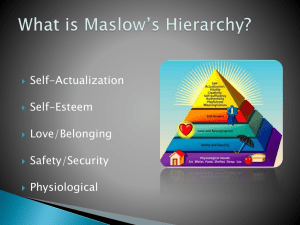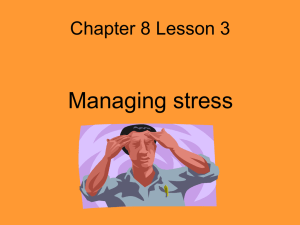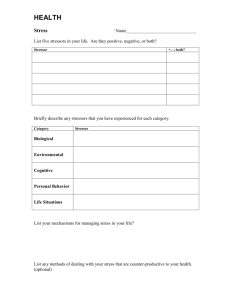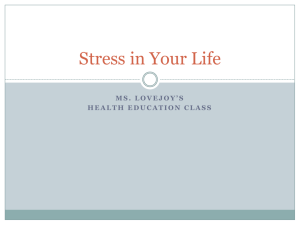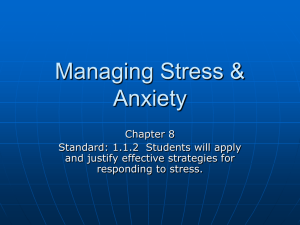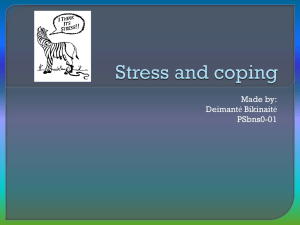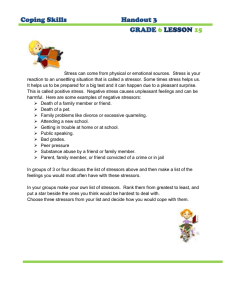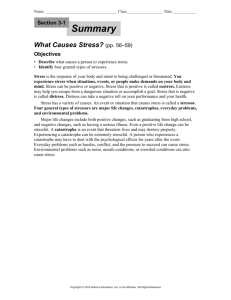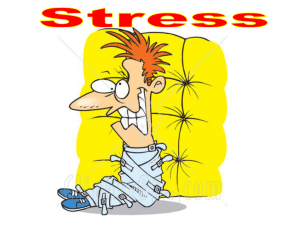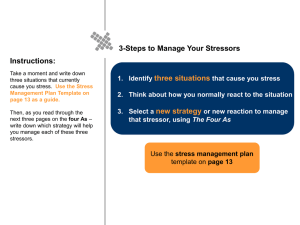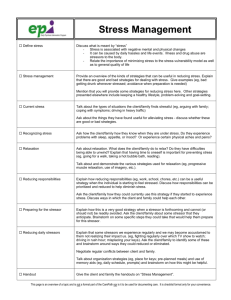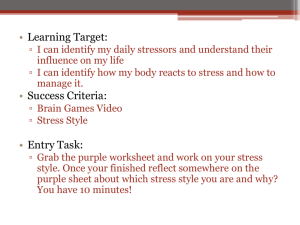Chapter 9
advertisement
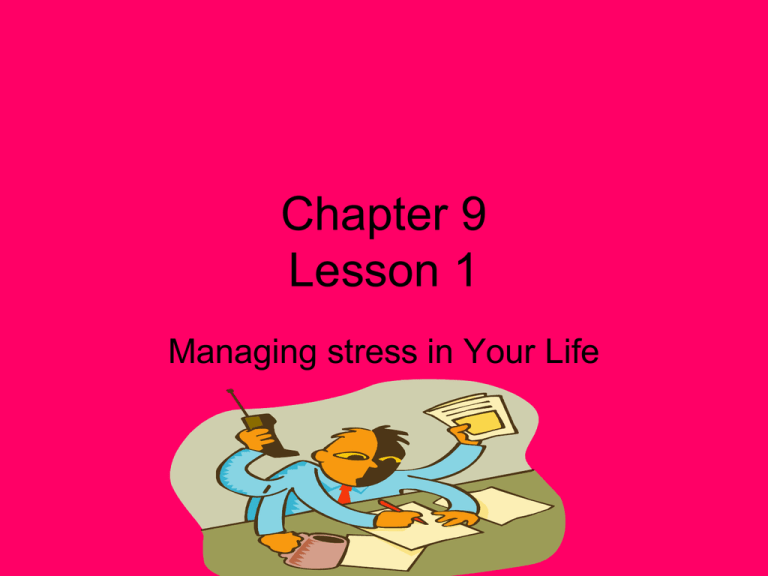
Chapter 9 Lesson 1 Managing stress in Your Life What is Stress? • Stress - Is the body and mind’s reaction to everyday demands or threats Stress and your well being • SOMETIMES STRESS IN YOUR DAY IS MINOR AND AND GOES ALMOST UNNOTICED • Other times it can be so strong that you may feel as if you are under a lot of pressure and out of control Kinds of stress • Distress – Negative stress • Eustress – Positive stress Stressor • Any stimulus that produces stress • (what causes stress) Kinds of Stressors • Biological – biochemical imbalances, mental, physical illnesses, disabilities or injuries • Environmental – Poverty, pollution, crowding, noise, natural disasters • Cognitive (thinking) – way you perceive situation or what you expect from it Kinds of Stressors • Personal behavior stressors – negative reactions in the body an mind caused by using tobacco, alcohol, or other drugs or not exercising Kinds of Stressors • Life Situations – Having a relative or pet die. Parents who separate or divorce, trouble in relationships with peers Your Body’s Stress Response • The nervous system and the Endocrine system are active during the body’s response to stressor • It is largely involuntary, or automatic • It occurs in 3 stages, whether physical, emotional, positive or negative Three Stages of Response Stage 1 • Alarm – Body and mind go on high alert 1.Hypothalamus excited by stressor 2.Autonomic nervous system is activated 3.Pituitary gland activated 4.Pituitary secretes hormone “Adrenaline” – (emergency hormone) 5. Fight or flight response gives energy to get you through actual or perceived emergency 3 stages of stress Stage 2 Resistance –Body tries to repair its damage from the stressful event and return to its normal state - This is stage when resistance reaches its peak - Stage where incredible feats of strength have been known to happen 3 Stages of Stress 3rd stage Fatigue – results in feeling tired that lowers level of activity 3 Types of Fatigue Physical fatigue- may occur at end of long day or after exercise Pathological fatigue – tiredness brought on by overworking the body’s defense system Psychological fatigue – can result from constant worry, work, depression, boredom, and isolation
